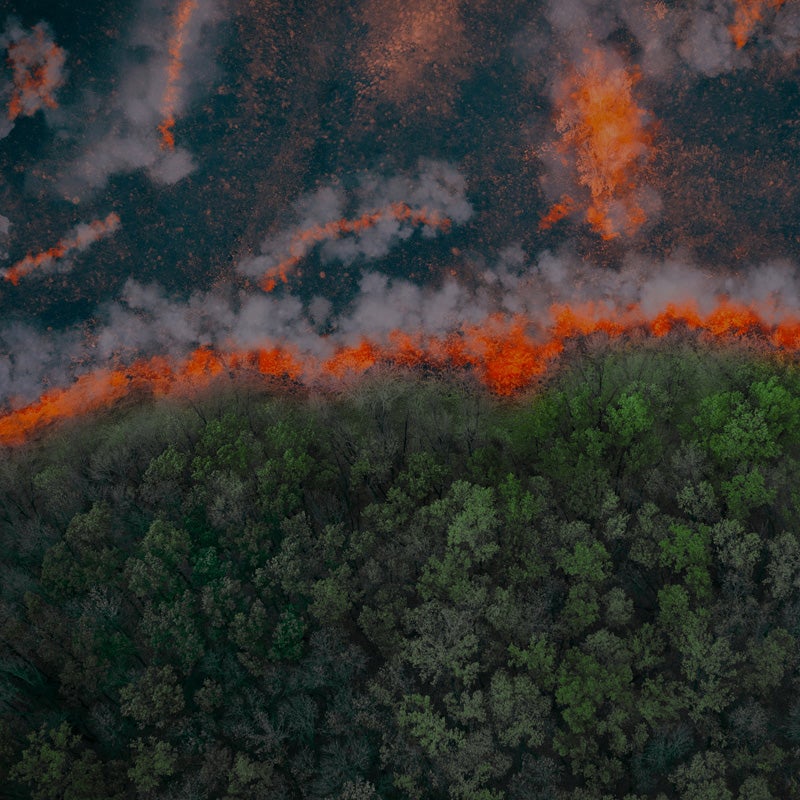
Australia, known for its diverse breathtaking landscapes and iconic biodiversity, often stands at the forefront of the global challenge to manage and mitigate extreme wildfires. As climate change accelerates the frequency and intensity of these catastrophic events, Australia’s recent history of destructive bushfires underscores the urgent need for innovative solutions, and XPRIZE Wildfire is excited to announce that the final testing milestone for the XPRIZE Wildfire Space-Based Wildfire Detection and Intelligence Track will take place in Australia in August 2025.
WHY AUSTRALIA?
Australia’s mosaic of ecosystems, from its fire-adapted Eucalyptus forests to its vast outback, presents a diverse and challenging environment—ideal for putting the competing teams’ cutting-edge early detection technologies to the test. In recent memory, the devastating 2019-2020 Black Summer bushfires, which burned over 18 million hectares and released massive amounts of carbon into the atmosphere, highlighted the critical need for rapid, precise, and actionable wildfire management tools. Additionally, Aboriginal and Torres Strait Islander peoples have practiced cultural burning for millennia, using low-intensity fires to manage the landscape in harmony with nature. This carried wisdom is increasingly recognized as a vital component of modern fire management. Ahead of finals, XPRIZE Wildfire competing teams will have more access to the resources and community collaborations that can help forge this essential path forward—one where humanity and nature can coexist more safely and sustainably—as was recently demonstrated by the Team Summit held at Swinburne University of Technology’s Advanced Technologies Center in Melbourne, Victoria.
WHAT TO EXPECT DURING FINALS TESTING
During the finals, the competing teams will be tasked with demonstrating their space-based wildfire detection systems under real-world conditions. Teams will be required to identify and accurately characterize wildfires across vast areas—sometimes as large as entire states or countries—using Earth Observation (EO) data from satellites orbiting over 100 kilometers above the Earth.
Each team will need to identify all active wildfires within just one minute and provide a detailed analysis of each fire’s behavior, such as its perimeter, direction of spread, and intensity, within 10 minutes. The teams will also be challenged to minimize false positives—incorrectly identifying non-fire heat sources like solar panels or hot surfaces as fires—which is crucial for ensuring that resources are deployed effectively in real-life scenarios.
This rigorous testing process will take place over a 12-hour window, mirroring the operational period fire managers typically have during a wildfire event. By integrating their systems with advanced geospatial platforms like Esri’s ArcGIS Online, teams will have the chance to prove how their solutions will deliver real-time data and intelligence that could significantly enhance how wildfires are managed in the future.
COLLABORATION FOR A RESILIENT FUTURE
The XPRIZE Wildfire competition is not just about pioneering innovation—it’s about mobilizing partnerships and collaboration to end destructive wildfires. We are partnering with Australian fire services, government agencies, and local communities to ensure that finals testing is conducted with the utmost safety and deeply informed by local expertise.
As climate change reshapes our world, the need for advanced wildfire detection at inception, before it has the chance to become destructive, has never been greater. The XPRIZE Wildfire competition is a bold step towards a future where innovative technologies can detect and respond to wildfires faster than ever before, minimizing destruction and protecting both biodiversity and communities.
Stay tuned as we approach the finals in August 2025, when the next generation of wildfire detection technologies will be put to the test.